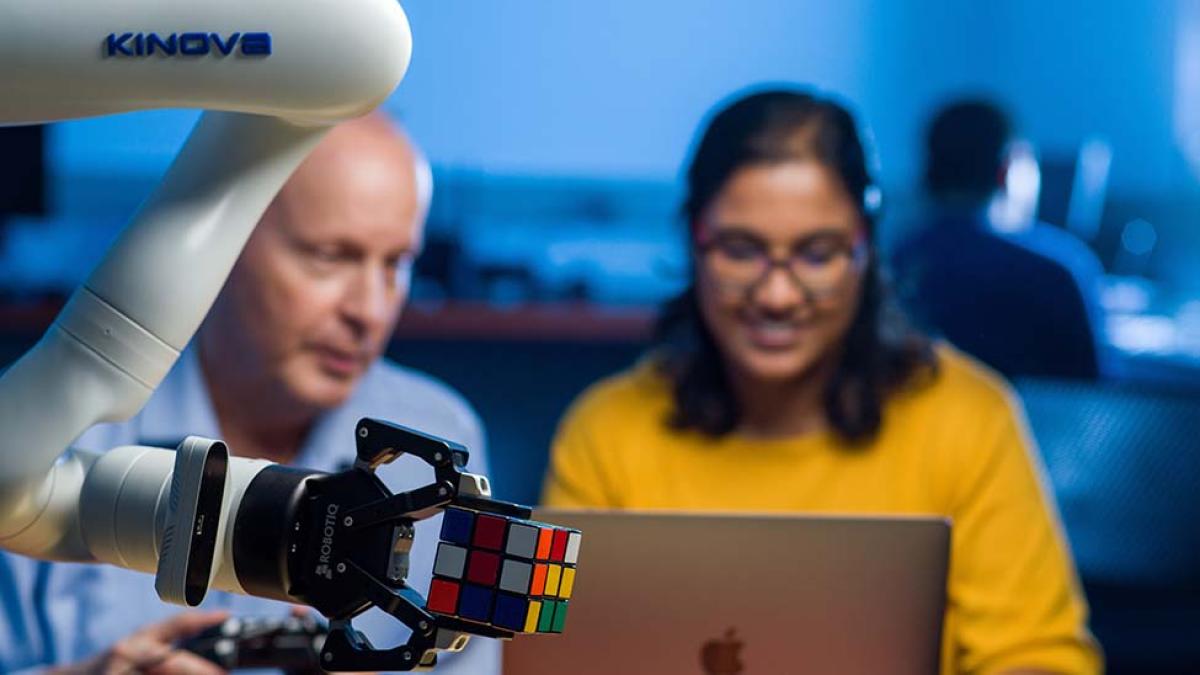In his second semester, he interned for a Manhattan Borough President campaign. Last semester, he interned for Senate Majority Leader Charles Schumer’s district office. As a second-year student, Aman Islam is demonstrating what it means to be a go-getter, and he shows no signs of stopping.
Un-complicating cybersecurity: 3 ways to teach students about cybersecurity
Knowing cybersecurity basics is essential to staying safe online, often called digital hygiene, according to Dr. Pauline Mosley, a Computer Science professor at Pace University.
Law School, NO. 1 In Nation For Environmental Law
Pace University’s Elisabeth Haub School of Law in White Plains is once again ranked No. 1 in the country for environmental law by the latest “U.S. News and World Report” rankings.
Pace University's Haub Law Ranked No. 1 for Environmental Law
Pace University's Elisabeth Haub School of Law is once again ranked number one in the country for Environmental Law by the latest U.S. News and World Report rankings, released today.
Email Based Cybercrime Thefts
Adjunct Professor John Bandler explains why businesses should continually improve their cybersecurity plan to protect the organization, safeguard customer and employee data, and comply with legal standards.
Leonard-Litz Foundation Supports Next Generation of Queer Leaders
Pace’s LGBTQA+ Centers have received a $23,000 grant from the Leonard-Litz Foundation which will support the Centers in their efforts to empower the next generation of queer leaders.


Pace’s New York City and Westchester LGBTQA+ Centers have even more reason to feel proud.
In late February, the Leonard-Litz Foundation awarded the centers a $23,000 grant as part of their mission to "help LGBTQ+ people fulfill their potential....by funding organizations which advance the interests and well-being of the LGBTQ+ community through advocacy, programs, and services that meet the needs of LGBTQ+ people.”
Pace’s LGBTQA+ Centers have reflected this mission for years through leadership events, support groups, advocacy initiatives, and identity development services. Associate directors LaDarius DuPree and Rachel Simon applied for the grant to help fund their annual Q-Camp leadership retreat and a new program, the TGNCNB (transgender, gender nonconforming, nonbinary) and QTPOC (queer and trans people of color) Leadership Series.
Q-Camp seeks to disrupt that notion; Q-Camp seeks to heal.
Q-Camp has been a beloved event since 2015, bringing LGBTQA+ students from both Pace campuses together for an intensive leadership retreat. DuPree believes Q-Camp helps confront the misconception that LGBTQA+ people exist not as leaders but as outsiders, on the margins of society. He says, “Q-Camp seeks to disrupt that notion; Q-Camp seeks to heal.” One of the camp’s attendees echoes the importance of creating a queer-identified community, saying, “Q-Camp is important for LGBTQA+ students at Pace University because it gives students a space to really exist and feel safe in a space with other queer kids; it is imperative that queer kids get those spaces.”
The TGNCNB and QTPOC Leadership Series will bring experienced facilitators to the New York City and Westchester Pace campuses to provide semester-long engagement with undergraduate students in identity-specific spaces, not only to further offer support and engagement for queer students, but to help them go even further. According to DuPree, “Through our work, Rachel and I are fostering the next generation of Queer greats; a connected community of Setters that will go forth and add a little more vibrance to this world.”
More than anything, this grant reaffirms the importance of, as DuPree describes it, blending queer discourse with leadership development. With this new grant, there is little question that Pace’s LGBTQA+ Centers will continue to elevate queer voices and cultivate exceptional leaders.
Learn more about Pace’s LGBTQA+ Centers, and check out their resources, upcoming events, and more.
More from Pace
Join Pace's Office of Research and Graduate Education on Thursday, April 7, for The Future of Pace, an interdisciplinary online conference featuring panel discussions and faculty research presentations, as well as a keynote address by Dan Porterfield, president and CEO of the Aspen Institute.
What is the price of a dream? Dyson Professor Kiku Huckle explores complex questions about belonging, identity, and immigration in her new thought-provoking documentary.
Frequency Rising
Pace’s a cappella group, Frequency, has bounced back from challenges that nearly ended the group, to taking third place in their first-ever competition as a revamped group.
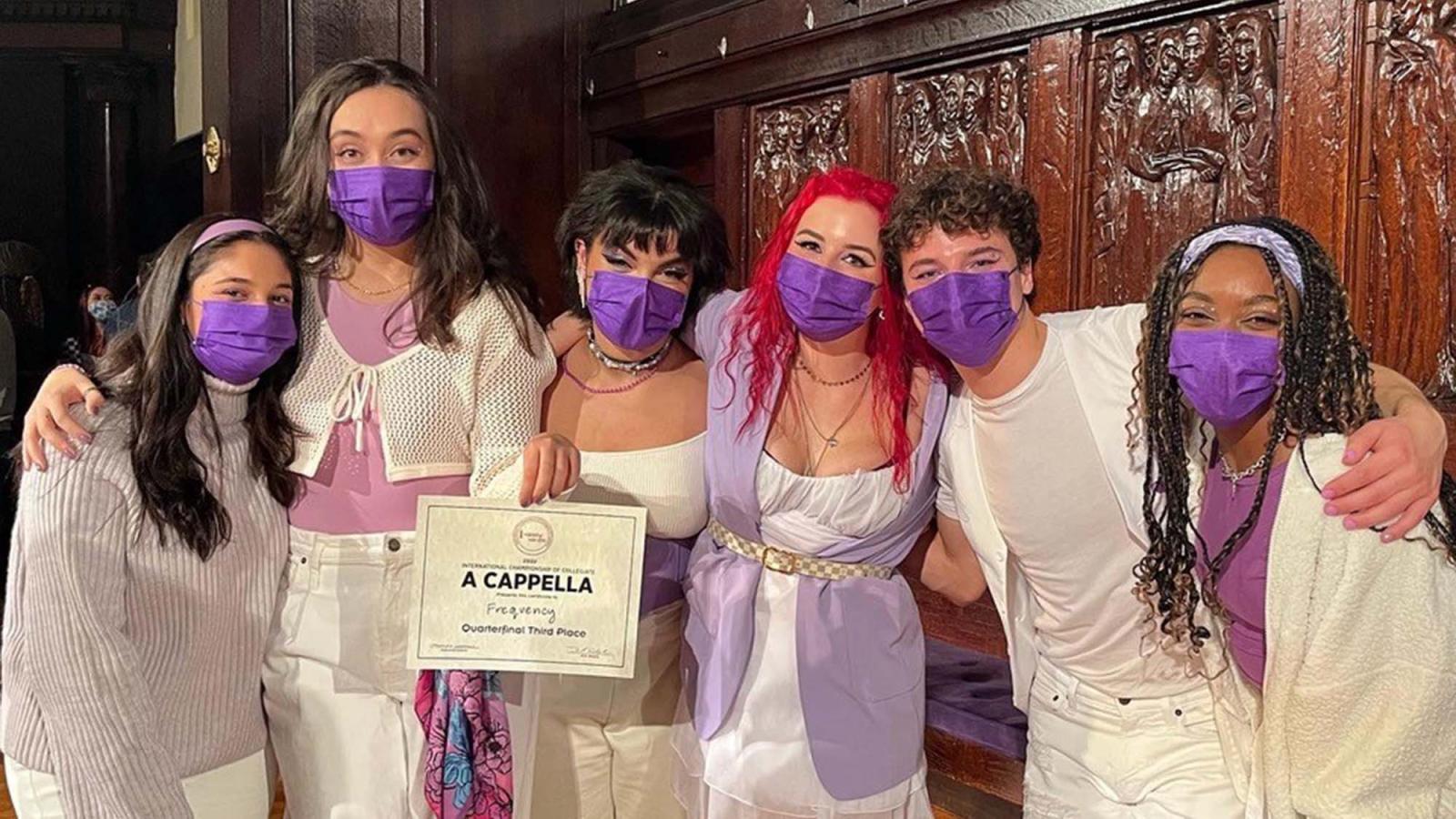

When we’re talking about a cappella, we’re talking about regionals, jazz hands, five-part harmonies. But don’t be mistaken, this isn’t anything like Pitch Perfect–
Actually…never mind. It kind of is.
At least according to the leaders of Pace’s NYC a cappella group Frequency, Mia Lastrella ’24 and Saloni Shah ‘24. This was their first year as the group’s leaders, and their first time attending the International Championship of Collegiate A Cappella (ICCA) Northeast Quarterfinals. “We were just told it was just like Pitch Perfect,” Shah explains, “and it really was, right down to the goofy person hosting it.” Aca-awesome.
Frequency formed back in 2017 but membership dwindled over the years—especially during the pandemic. Shah and Lastrella both joined in 2020, after the group began meeting virtually. With membership falling, they decided to take over and re-launch the group.
“Frequency is a place to build family and make your soul happy.”
Now, Frequency has 22 members, 18 of whom competed on March 5 in the ICCA Northeast Quarterfinals against nine other teams. It was nearly every member’s first time competing at all—and, nerve-rackingly, they were randomly selected to perform first. That didn’t stop them. Their pop-medley, including a jazzy rendition of Britney Spears’ Toxic, clinched third place for the team. What’s more, their enthusiasm garnered an invitation to the semifinals in Boston, despite historically being offered only to first and second place.
Despite their success, the group has always focused more on creativity than competition. “A lot of our members are non-musical theater or performance majors,” Lastrella explains. “It’s just a great outlet for them. For some people it’s the only non-STEM part of their day.”
Shah and Lastrella both hope to see Frequency continue to grow, and they’re seeking music-loving members who want a creative outlet with a focus on community and fun. And in return, new members will find a melodious welcome. As Shah says, “Frequency is a place to build family and make your soul happy.”
To learn more or join Frequency, email pacefrequency@gmail.com or follow them on Instagram.
More from Pace
What is the price of a dream? Dyson Professor Kiku Huckle explores complex questions about belonging, identity, and immigration in her new thought-provoking documentary.
Business students Ritvi Shah ’22 and Luanne Dinh ’22 talk about their experiences working with Pace’s Small Business Development Center and how they helped support New York City-based GLO Studio as it navigated the rough waters of business during a pandemic.
Meet Lubin student Aishna Kumar '22, a Pforzheimer Honors College student originally from Japan, who studied abroad in Barcelona, landed a dream internship at Nike, and took on a leadership role in Pace's chapter of the American Marketing Association.
The Haub Law Farm Bill Enterprise Sets is Sights on the Future
Professor Josh Galperin writes about the Farm Bill Law Enterprise collaboration in an article for the Westchester Lawyer.
“We want to reinvent the county committee system of local agricultural governance, so it is more efficient, expert, and equitable,” he said.
Alumni and Student Networking Success
On Monday, March 28, current law students and alumni from the Elisabeth Haub School of Law at Pace University joined together for a networking event on the Haub Law Campus. The event offered students the opportunity to network with recent alumni and learn more about the various potential career avenues after graduating from law school.
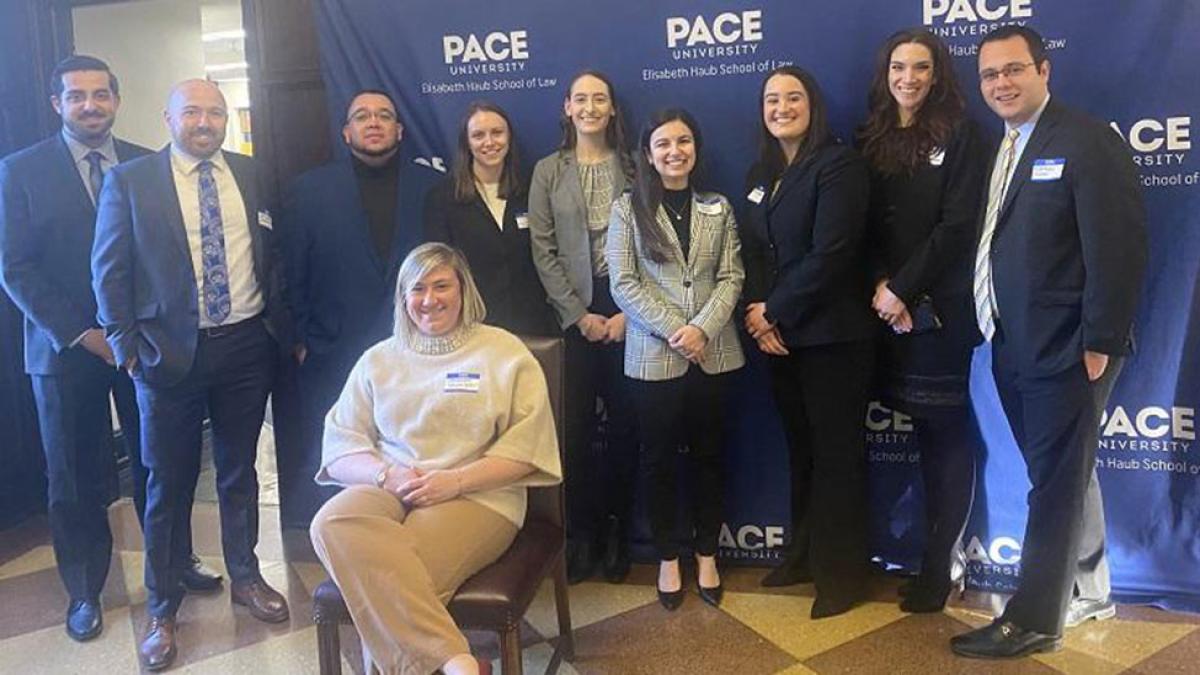
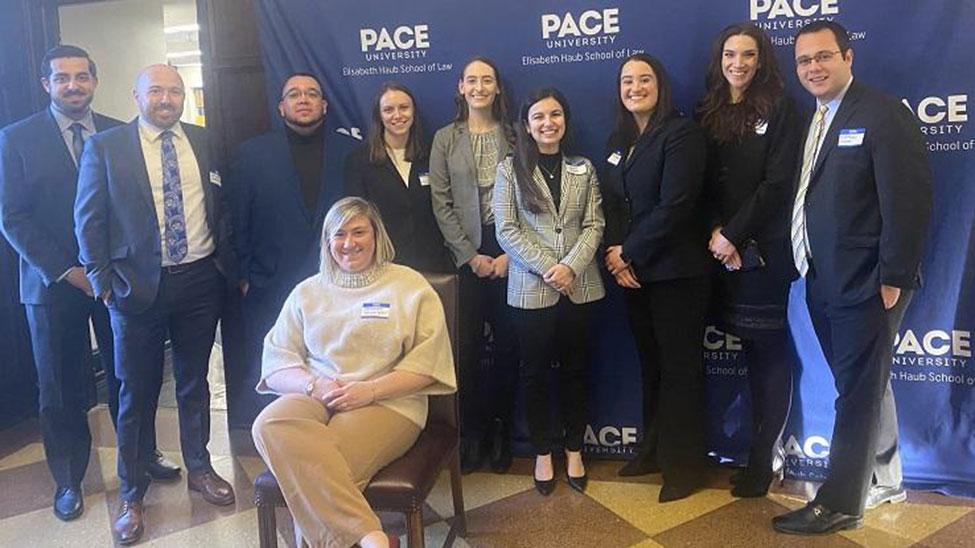
On Monday, March 28, current law students and alumni from the Elisabeth Haub School of Law at Pace University joined together for a networking event on the Haub Law Campus. The event offered students the opportunity to network with recent alumni and learn more about the various potential career avenues after graduating from law school. In attendance were 15 alumni who have successful careers in both the public and private sectors, along with approximately 50 law students. This event was part of the semester-long wellness initiative, “Haub Law’s Hub of Belonging: the 8 Pillars of Wellness.” Through a semester-long series of programming and campus initiatives focused on incorporating the eight pillars of wellness, law students will be offered a path towards optimal wellbeing during their time in law school and thereafter. Pace University’s Chief Wellness Officer awarded a grant to the Office of Student & Campus Affairs to support the success of this exciting and new initiative. This student and alumni networking event, coordinated by the Office of Student & Campus Affairs, the Center for Career and Professional Development (“CCPD”), and the Public Interest Law Students Organization (“PILSO”), fulfilled the occupational wellness pillar of the aforementioned initiative. Overall, the series of programming and campus initiatives have and will focus on the following areas of wellness: mental and emotional, social, intellectual, financial, spiritual, physical, occupational, and environmental. Each of these pillars of wellness will be addressed throughout the Spring 2022 semester, with the underlying overall commitment to help students find fulfillment across all facets of well-being and inclusion. The programming will also incorporate elements of diversity, equity, and inclusion, particularly when focusing on the mental and emotional pillar, as well as the social pillar.
Inaugural Pace Access to Justice Workshop Engages Community in an Impactful Discussion on the Importance of Housing Access
On Wednesday, March 30, Haub Law presented its inaugural Pace Access to Justice (A2J) Workshop with a spotlight on housing access. The Workshop brought together community leaders, legal services lawyers, advocates, and law school faculty, staff, and students to engage in dialogue centering on the critical importance of housing access, the current housing crisis, the status of “right to counsel” in eviction cases, and public service careers in housing law and related fields.
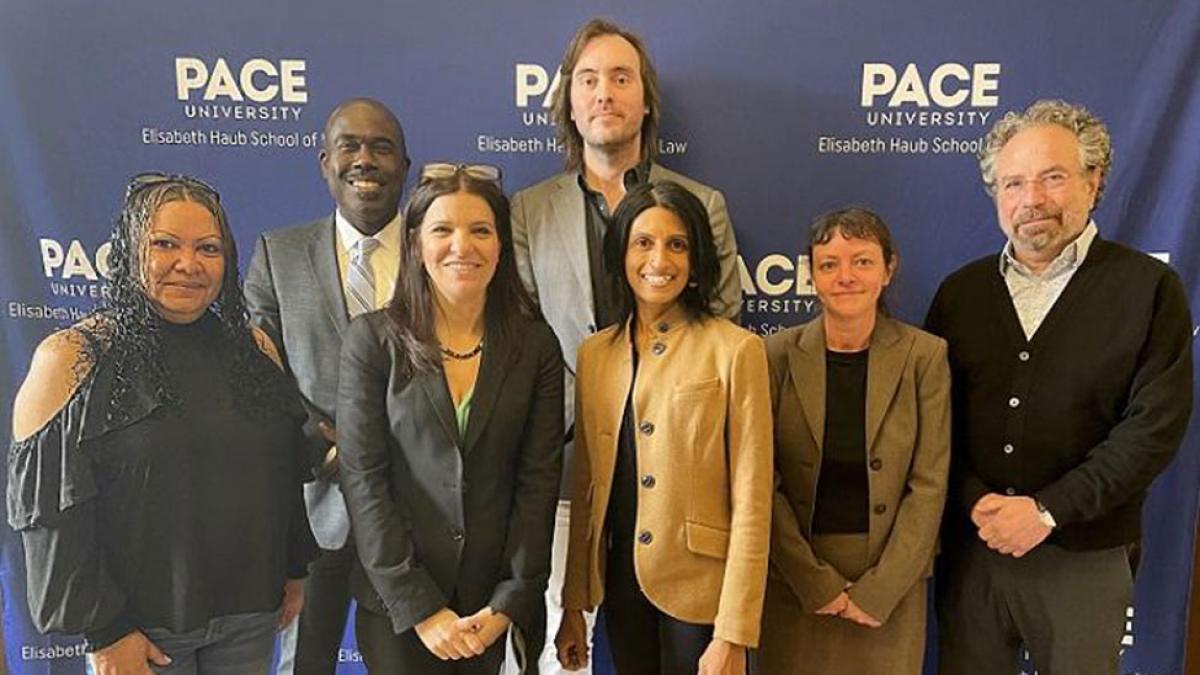
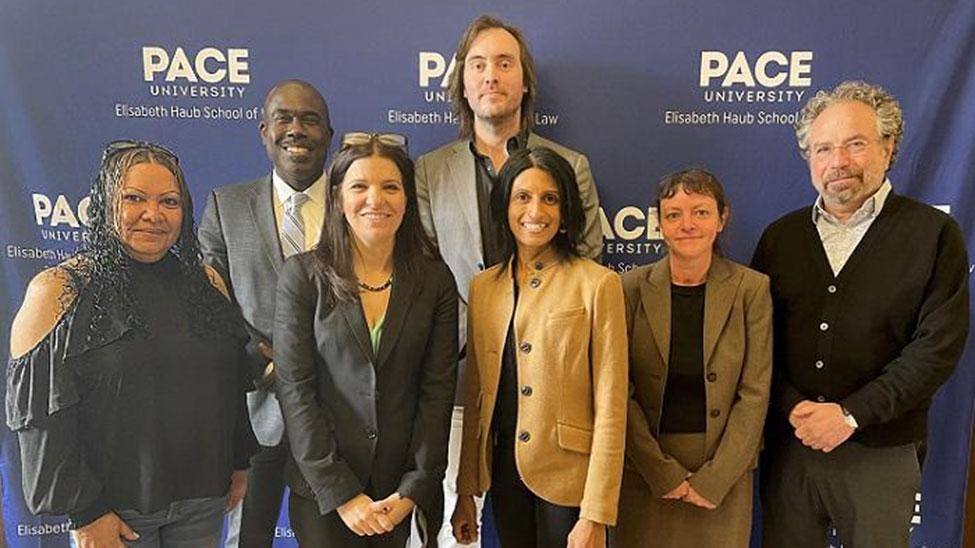
On Wednesday, March 30, Haub Law presented its inaugural Pace Access to Justice (A2J) Workshop with a spotlight on housing access. The Workshop brought together community leaders, legal services lawyers, advocates, and law school faculty, staff, and students to engage in dialogue centering on the critical importance of housing access, the current housing crisis, the status of “right to counsel” in eviction cases, and public service careers in housing law and related fields. The Workshop was hosted by Haub Law Professor Elyse Diamond, Director of the Public Interest Law Center and moderated by both Professor Diamond and Jason Mays, Director of Litigation at the Hudson Valley Justice Center. Panelists included: Andrew Scherer, Policy Director, Impact Center for Public Interest Law & Visiting Associate Professor, New York Law School, Marika Dias, Managing Director, Safety Net Project, Urban Justice Center, Marcie Kobak, Director of Litigation, Legal Services of the Hudson Valley, and Marilyn Martinez, a tenant panelist who shared her long (and ultimately successful) journey navigating Westchester’s complex housing court proceedings with critical help from her Legal Services of the Hudson Valley attorney team.
This workshop is part of the larger initiative launched by Haub Law, the Pace Access to Justice Project. Pace A2J, housed and coordinated within Haub Law’s existing Public Interest Law Center, is serving as a hub for community collaborations, programs, scholarship, policy initiatives, and hands-on innovative academic and non-credit bearing experiential law student and alumni opportunities. Together, Pace A2J is designed to more actively engage students in learning about and contributing to real-world efforts to address the access to justice gap. This engagement will happen through the Access to Justice Seminar and the complementary Access to Justice Lab. Professor Elyse Diamond coordinates Pace A2J, designing and teaching both the Lab and Seminar.
Professor Diamond noted, “I am incredibly excited to have hosted our Inaugural Pace A2J workshop, and am so grateful for our generous panelists and contributors who educated attendees about housing access gaps, advocacy and representation in our local and broader community. This program also provided a forum to bring the community together to discuss innovative ways the law school and its students and community partners are and can continue contributing to efforts to address the gaps in housing access in our area. Our students and Haub Law community were moved by the panelist’s words and experiences. We look forward to many more opportunities for engagement, learning, and problem solving.”
SUNY Orange, Pace University Transfer Program Launched
A new agreement between two local colleges will create what is being referred to as a 'seamless and smooth pathway for transferring and earning a bachelor's degree in a four-year time span.'

